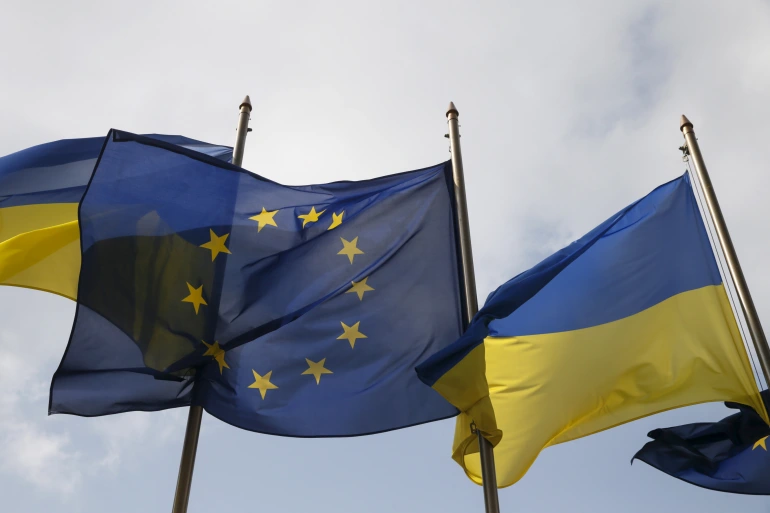The European Commission has backed Ukraine’s bid for a joining EU candidacy, bringing it one step closer to the bloc.

Ukraine has done “good work,” but more is needed, according to European Commission President Ursula von der Leyen.
Ukraine must implement “significant” reforms in the areas of rule of law, oligarchs, human rights, and anti-corruption, she added.
The European Commission’s recommendation still needs to be approved by the EU’s 27 member states who will meet next week to discuss it.
The leaders of France, Germany, and Italy have already backed Ukraine’s bid, but the decision must be unanimous.
“We want them to share the European dream with us,” she said, adding that Ukraine had demonstrated a “aspiration and determination to live up to European values and standards.”
But it is conditional, as Ukraine has work to do to ensure international law is followed, she said.
Ukraine’s President, Volodymyr Zelensky, said the “historic decision” would bring “victory closer.”
The announcement by EU President Ursula von der Leyen, who was dressed in the colors of the Ukrainian flag, came a day after representatives from the organization’s most powerful member states, France, Germany, and Italy, visited Kyiv for the first time and backed Ukraine’s bid to join the bloc
“We all know that Ukrainians are willing to die for the sake of Europe,” Ursula von der Leyen said. “We want them to share the European dream with us.”
What is Ukraine’s current relationship with the EU?
On February 28, four days after Russia invaded Ukraine, Zelenskyy requested that his country be admitted to the EU through a special procedure immediately, after which he officially signed an application for Ukraine’s membership.
Ukraine is currently part of the Eastern Partnership, which includes Moldova, Georgia, Armenia, Azerbaijan, and the Republic of Moldova.
This joint policy partnership aims to strengthen and deepen ties between EU member states and the six ” partner countries.”
What are the prerequisites for joining the EU?
According to Article 49 of the EU Treaties, any European nation seeking to join the bloc must be committed tore respecting and promoting the EU’s fundamental values outlined in Article 2. These include freedom, democracy, equality, the rule of law, and so on. Following receipt of the application, EU members assess the nation’s suitability based on these terms.
More specific criteria were established at the European Council meeting in Copenhagen in 1993. The Copenhagen Criteria are essential conditions that all candidate countries must meet.
What is the procedure for applying to join the EU?
The process of gaining EU membership is divided into three stages. The country is designated as an official candidate in the first stage.
In the second stage, formal membership negotiations with the candidate begin, which includes the incorporation of EU law into national law as well as the implementation of the accession criteria, which include judicial, administrative, economic, and other reforms. The candidate can join the EU once the negotiations are completed and they have met all of the accession criteria Becoming a member of the bloc is a lengthy and complicated process.
Even after candidate status is granted, the remainder of the process can take years.
The negotiation, in particular, lasts a long time.
Its duration varies depending on the country. Croatia, the EU’s most recent member, joined in 2013, and the process took ten years to complete.













